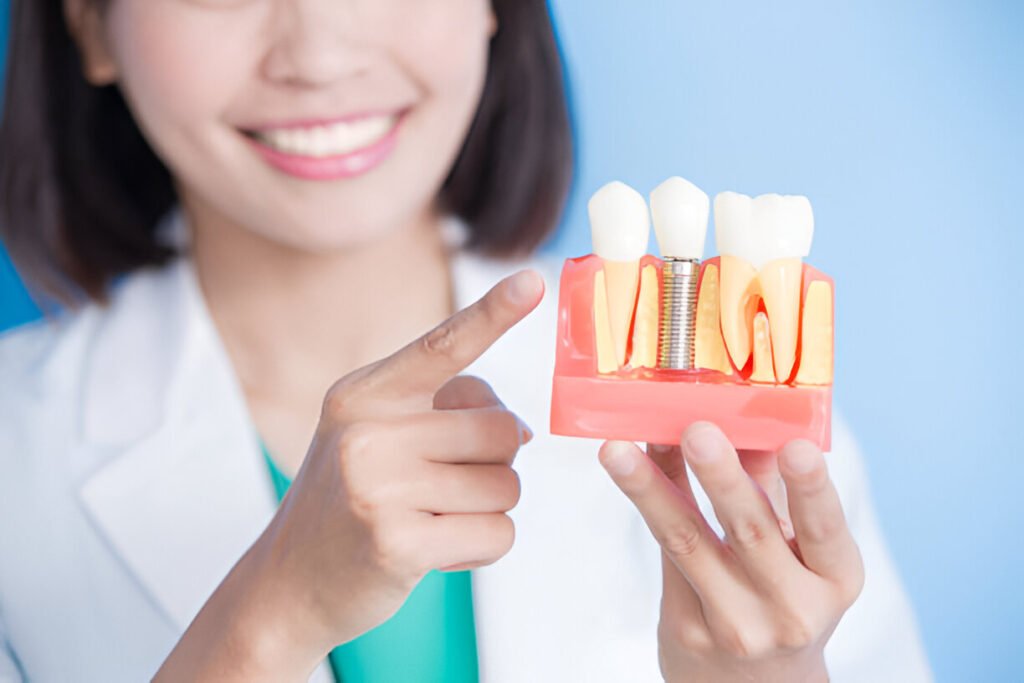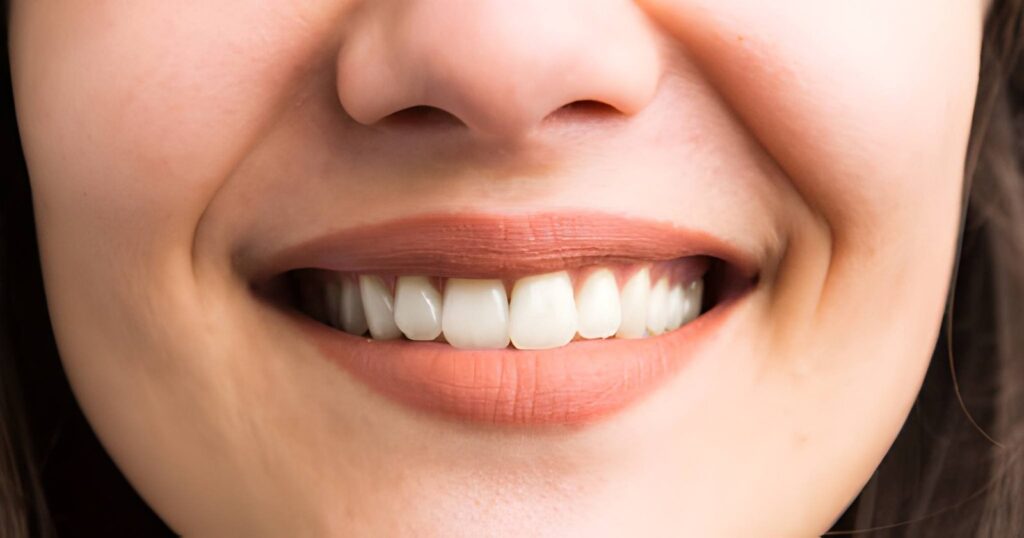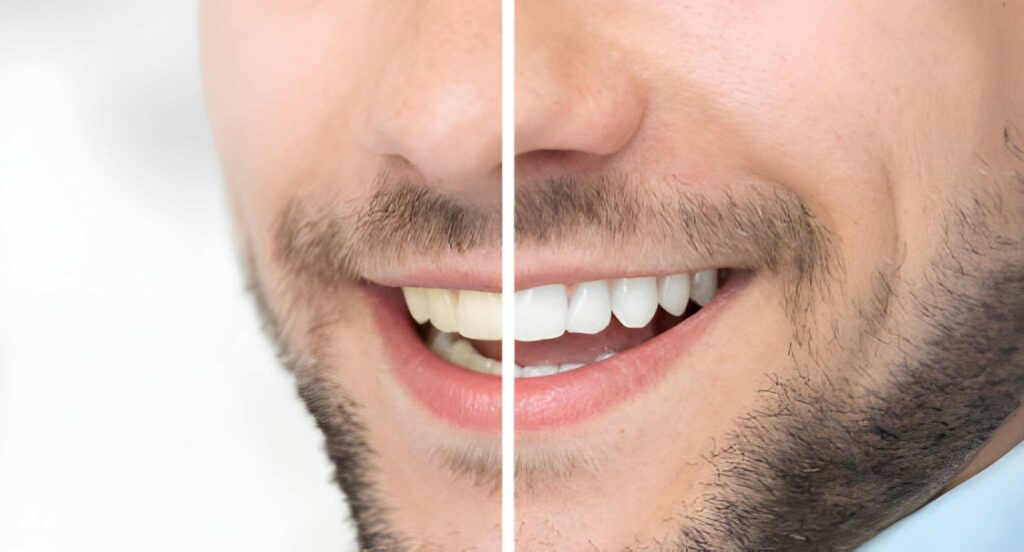Missing teeth can cause difficulties with eating, speaking, and confidence. Dental implants offer an excellent solution to restore your smile, but many wonder how many teeth a single implant can hold. This article explores this question, explaining the capacity of a single implant and the factors that influence it. If you’re curious about how implants work and what to expect, you’re in the right place.
What Is a Dental Implant?
A dental implant is an artificial tooth root, usually made of titanium, that is surgically placed into the jawbone. The implant provides a strong, stable foundation for replacement teeth, such as crowns, bridges, or dentures. Implants are ideal because they support the jawbone, prevent bone loss, and feel natural. They are more than just a cosmetic fix—they restore both the appearance and function of your teeth.
Does It Hurt to Get Teeth Implants?
How Many Teeth Can a Single Implant Hold?
A single implant can typically hold between one and three teeth. The exact number depends on various factors, such as the type of implant, the health of the jawbone, and the position of the missing teeth. Let’s break down these options:
- One Tooth Replacement: If you are missing just one tooth, your dentist will place a single implant. Once the implant bonds with the jawbone, a crown (the visible part of the tooth) will be attached. This process replaces the missing tooth, restoring its full function and appearance.
- Multiple Teeth Replacement: Sometimes, a single implant can support two or three teeth. For example, a two-unit restoration may include one crown and one pontic (an artificial tooth attached to the crown). In a similar setup, three teeth may be replaced using a fixed bridge attached to one implant. However, this depends on the jaw’s condition and the size of the gap.
Can Your Mouth Reject a Dental Implant?
Factors Affecting the Number of Teeth a Single Implant Can Hold
The capacity of a single dental implant is not fixed. Several factors influence how many teeth an implant can support:
- Jawbone Health: The strength and density of your jawbone play a crucial role in how many teeth an implant can hold. If the jawbone is too weak or has lost volume, the implant might not be able to support more than one tooth. In some cases, bone grafting may be necessary to strengthen the area before implant placement.
- Space and Proportions: Each tooth needs enough space for proper alignment and function. If the gap between missing teeth is too small, placing multiple teeth on one implant could lead to overcrowding or misalignment. The size and spacing of the teeth influence the decision on how many teeth an implant can safely support.
- Biting and Chewing Forces: Your bite pressure affects the stability of the implant. Too many teeth on a single implant can increase the load, causing instability or even implant failure. Dentists carefully consider chewing forces when determining how many teeth to place on an implant. The balance between the implant and bite forces ensures long-term durability.
- Aesthetic Considerations: Achieving a natural-looking smile is a key goal in dental implant procedures. Placing too many teeth on a single implant could create a crowded appearance or negatively impact the overall look. Dentists ensure that the number of teeth placed on the implant complements your facial structure and provides a pleasing aesthetic result.
How Much Does a Single Dental Implant Cost in the UK?
Treatment Options for Multiple Missing Teeth
When several teeth are missing, there are a few treatment options available. These solutions depend on the number of teeth missing, jawbone health, and your specific dental needs:
- Implant-Supported Bridges: If you are missing several teeth in a row, an implant-supported bridge may be the ideal solution. Instead of using adjacent natural teeth as anchors, implants are placed at each end of the gap, supporting multiple teeth in between. This offers a stable, long-lasting solution without damaging the surrounding healthy teeth.
- All-on-4 Implants: If you have lost most or all teeth in one arch, the All-on-4 technique can restore your entire smile with just four implants. Two implants are placed at the front, and two angled implants are positioned at the back of the jaw, where the bone is thicker. This provides strong support for a full arch of teeth, giving you a complete, functional smile.
What is the Best Age to Get a Tooth Implant?
Maintaining Dental Implants
Dental implants require care just like natural teeth. Proper brushing, flossing, and regular dental check-ups will help ensure that your implants last a long time. With the right care, implants can last for decades, providing a permanent solution to tooth loss.
Conclusion
A single dental implant can hold one to three teeth, depending on several factors. The condition of your jawbone, the size of the gap, and biting forces all influence the number of teeth a single implant can support. For those missing multiple teeth, options like implant-supported bridges and All-on-4 implants offer effective solutions. Always consult with a qualified dentist to discuss your specific needs and create a tailored treatment plan.
With proper care, dental implants offer a long-lasting, natural-looking solution to missing teeth, improving both function and appearance. Whether you need to replace one tooth or several, dental implants could be the key to restoring your confidence and smile.
By understanding how many teeth a single implant can hold and the factors involved, you can make an informed decision about your dental health.
Can You Lose Your Gums Around Dental Implants?
Restore Your Smile with Holburn Dental and Implant Centre
Are you looking for a long-lasting solution to missing teeth? At Holburn Dental and Implant Centre, we specialise in providing high-quality dental implants that restore both the appearance and function of your smile. Whether you need to replace one tooth or several, our experienced team will create a personalised treatment plan tailored to your needs. As an NHS Dentist in Aberdeen, we offer a range of dental services, including implants, to ensure you receive the best care possible.
Contact us today to schedule a consultation and take the first step towards regaining your confidence and oral health. Let Holburn Dental and Implant Centre help you smile brightly again!
Schedule Your Consultation Today!
Frequently Asked Questions
How long do dental implants last?
With proper care, dental implants can last a lifetime. Good oral hygiene, regular check-ups, and maintaining healthy gums contribute to the longevity of implants, ensuring they remain functional and aesthetically pleasing for years.
Can anyone get dental implants?
Most adults with healthy gums and sufficient jawbones can get dental implants. However, a consultation is needed to assess your suitability. Patients with medical conditions or bone loss may require additional procedures before implant placement.
Are dental implants painful?
The implant procedure is done under local anesthesia, so patients feel minimal discomfort. Post-surgery, there may be mild swelling or soreness, but this can be managed with over-the-counter pain relievers.
How long does it take to heal after a dental implant?
Healing from a dental implant procedure typically takes 3 to 6 months. During this time, the implant fuses with the jawbone, creating a strong foundation for the replacement tooth.
What are the benefits of dental implants?
Dental implants offer several benefits, including improved appearance, better speech, enhanced comfort, and restored chewing ability. They also prevent bone loss and maintain the facial structure, offering a more permanent solution compared to dentures or bridges.
How do I care for dental implants?
Caring for dental implants involves regular brushing, flossing, and routine dental check-ups. It’s essential to maintain good oral hygiene to prevent gum disease, which can affect the stability and health of the implants.




